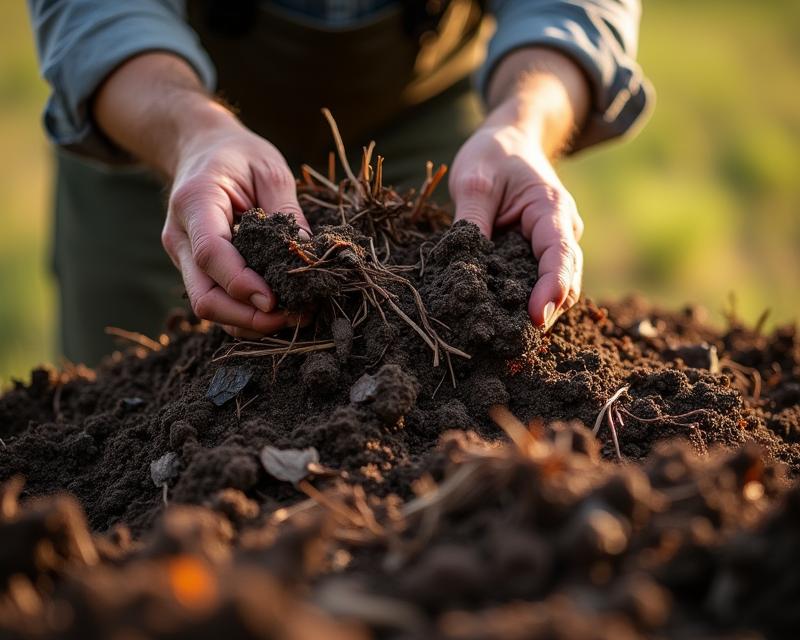Ancient Composting: Farming's Forgotten Secret
Publish in Sustainable Farming el 21/07/2025 00:54
Ancient Composting: Farming's Forgotten Secret
For centuries, farmers and gardeners understood a fundamental truth: the soil is alive, and it needs feeding! Long before synthetic fertilizers, they relied on a simple, powerful process – composting. This wasn't just about getting rid of waste; it was a deeply ingrained practice of returning nutrients to the earth, creating a cycle of sustainability that modern agriculture often overlooks.

Think back to the earliest farming communities. What happened to crop residues, animal manure, and kitchen scraps? They weren't simply discarded. Instead, they were carefully collected and layered with other organic materials like straw, leaves, and wood ash. This mixture, left to decompose naturally, transformed into a rich, dark substance – the lifeblood of healthy soil. This traditional composting wasn't just a side activity; it was integral to successful harvests and thriving livestock.
The Wisdom of Waste Recycling
The beauty of ancestral composting lies in its simplicity and effectiveness. It’s a natural way to recycle valuable nutrients that would otherwise be lost to the environment. Manure, for example, is packed with nitrogen, phosphorus, and potassium – the essential building blocks for plant growth. Crop residues contribute carbon, which feeds the beneficial microbes that drive decomposition. Wood ash provides potassium and helps balance the soil's pH. By combining these materials, farmers created a nutrient-rich amendment that improved soil structure, water retention, and overall fertility.
This practice wasn't just about improving yields; it was about building resilient ecosystems. Healthy soil, teeming with life, is better able to withstand drought, floods, and pests. It’s a holistic approach to farming that recognizes the interconnectedness of all things. Modern farmers can learn a great deal from these ancestral techniques. By embracing composting, we can reduce our reliance on synthetic inputs, improve soil health, and create more sustainable and productive farms. It’s a powerful way to honor the wisdom of the past and build a healthier future for our land.
So, whether you're a seasoned farmer or a backyard gardener, consider reviving the ancient art of composting. It’s a simple, effective, and incredibly rewarding way to nourish your soil and connect with the natural rhythms of the earth. Start small, experiment with different materials, and watch your garden – and your farm – flourish!





